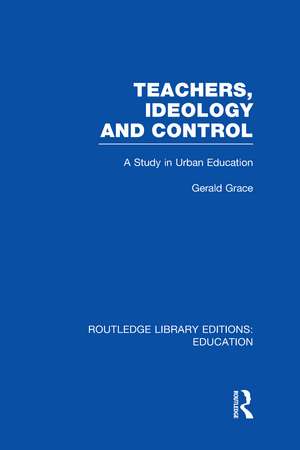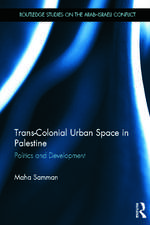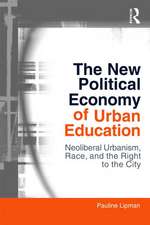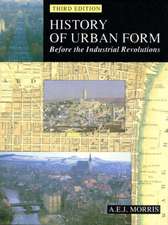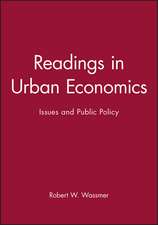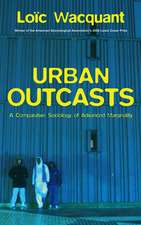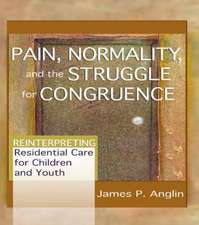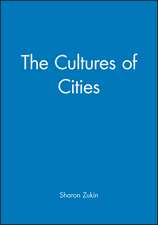Teachers, Ideology and Control (RLE Edu N): Routledge Library Editions: Education
Autor Gerald Graceen Limba Engleză Hardback – 8 dec 2011
Teachers, Ideology and Control is one of the first attempts to examine this important social and occupational group by locating contemporary sociological research in an historical framework. As such it will be of interest not only to students of sociology and education (especially urban education) but also to social historians. Its relevance to those who either administer or teach in urban schools will be clear. The author shows the ways in which contemporary inner city schools are caught up in an ideological struggle in education. He explore the nature of constraint and control in urban education with reference to existing constructs of the ‘good teacher’; the demands of the teacher’s work situation and the reality of autonomy. He suggests that, viewed historically, the relative autonomy of teachers has increased as a result largely of socio-political and institutional crises. At the same time however there have been important changes in the modality of social control, changes from more explicit to more implicit features. What it is to be a ‘good teacher’, the effects of day-to-day ‘immersion’ in school life and the ideology of professionalism- -these are all seen to be important constituents of a network of implicit control in contemporary education.
Din seria Routledge Library Editions: Education
-
 Preț: 379.00 lei
Preț: 379.00 lei -
 Preț: 377.09 lei
Preț: 377.09 lei - 8%
 Preț: 375.32 lei
Preț: 375.32 lei -
 Preț: 401.28 lei
Preț: 401.28 lei -
 Preț: 400.93 lei
Preț: 400.93 lei -
 Preț: 566.49 lei
Preț: 566.49 lei -
 Preț: 379.48 lei
Preț: 379.48 lei - 18%
 Preț: 1298.07 lei
Preț: 1298.07 lei -
 Preț: 641.88 lei
Preț: 641.88 lei - 34%
 Preț: 819.90 lei
Preț: 819.90 lei - 26%
 Preț: 247.40 lei
Preț: 247.40 lei - 34%
 Preț: 819.90 lei
Preț: 819.90 lei - 34%
 Preț: 991.00 lei
Preț: 991.00 lei - 34%
 Preț: 822.76 lei
Preț: 822.76 lei - 34%
 Preț: 821.53 lei
Preț: 821.53 lei - 26%
 Preț: 259.98 lei
Preț: 259.98 lei - 34%
 Preț: 764.20 lei
Preț: 764.20 lei - 34%
 Preț: 819.90 lei
Preț: 819.90 lei - 34%
 Preț: 819.90 lei
Preț: 819.90 lei - 34%
 Preț: 761.85 lei
Preț: 761.85 lei - 34%
 Preț: 986.91 lei
Preț: 986.91 lei - 55%
 Preț: 541.50 lei
Preț: 541.50 lei - 34%
 Preț: 762.01 lei
Preț: 762.01 lei - 25%
 Preț: 261.37 lei
Preț: 261.37 lei - 34%
 Preț: 762.97 lei
Preț: 762.97 lei - 34%
 Preț: 819.90 lei
Preț: 819.90 lei - 34%
 Preț: 986.91 lei
Preț: 986.91 lei - 34%
 Preț: 821.53 lei
Preț: 821.53 lei - 34%
 Preț: 819.90 lei
Preț: 819.90 lei - 34%
 Preț: 819.90 lei
Preț: 819.90 lei - 34%
 Preț: 821.13 lei
Preț: 821.13 lei - 34%
 Preț: 2100.27 lei
Preț: 2100.27 lei - 34%
 Preț: 819.90 lei
Preț: 819.90 lei - 34%
 Preț: 819.90 lei
Preț: 819.90 lei - 34%
 Preț: 764.20 lei
Preț: 764.20 lei - 34%
 Preț: 819.90 lei
Preț: 819.90 lei - 34%
 Preț: 986.91 lei
Preț: 986.91 lei - 34%
 Preț: 764.20 lei
Preț: 764.20 lei - 34%
 Preț: 819.90 lei
Preț: 819.90 lei - 34%
 Preț: 4048.76 lei
Preț: 4048.76 lei - 34%
 Preț: 736.38 lei
Preț: 736.38 lei - 34%
 Preț: 819.90 lei
Preț: 819.90 lei - 34%
 Preț: 764.20 lei
Preț: 764.20 lei - 34%
 Preț: 821.53 lei
Preț: 821.53 lei - 34%
 Preț: 819.90 lei
Preț: 819.90 lei - 34%
 Preț: 819.90 lei
Preț: 819.90 lei - 34%
 Preț: 819.90 lei
Preț: 819.90 lei
Preț: 819.90 lei
Preț vechi: 1239.36 lei
-34% Nou
Puncte Express: 1230
Preț estimativ în valută:
156.98€ • 161.03$ • 132.17£
156.98€ • 161.03$ • 132.17£
Carte tipărită la comandă
Livrare economică 26 februarie-12 martie
Preluare comenzi: 021 569.72.76
Specificații
ISBN-13: 9780415698832
ISBN-10: 0415698839
Pagini: 278
Dimensiuni: 156 x 234 mm
Greutate: 0.45 kg
Ediția:1
Editura: Taylor & Francis
Colecția Routledge
Seria Routledge Library Editions: Education
Locul publicării:Oxford, United Kingdom
ISBN-10: 0415698839
Pagini: 278
Dimensiuni: 156 x 234 mm
Greutate: 0.45 kg
Ediția:1
Editura: Taylor & Francis
Colecția Routledge
Seria Routledge Library Editions: Education
Locul publicării:Oxford, United Kingdom
Public țintă
General, Postgraduate, Professional, and UndergraduateCuprins
Preface. Acknowledgements.Introduction. Part 1 Socio-historical Context 1. Teachers of the Urban Working Class: socio-historical location 2. The Working World of the ‘Teachers of the People’ 3. Change and Continuity in Urban Education 4. The ‘Problem’ of the Urban School: conservative and liberal formulations 5. The ‘Problem’ of the Urban School: radical and Marxist formulations. Part 2 Fieldwork 6. Situating the Enquiry 7. The Social Construction of the ‘Good Teacher’: a Study in One School – 8. Defining ‘Good’ Teachers in Ten Schools 9. Pupils, Localities and the Experience of Teaching 10. Curriculum and Pedagogy 11. Conclusions. Appendices: The Schools and the Teachers. Interview Procedures. Notes. Bibliography. Indexes.
Descriere
Teachers, Ideology and Control is one of the first attempts to examine the urban working class by locating contemporary sociological research in an historical framework. As such it will be of interest not only to students of sociology and education (especially urban education) but also to social historians. Its relevance to those who either administer or teach in urban schools will be clear. The author shows the ways in which contemporary inner city schools are caught up in an ideological struggle in education. He explore the nature of constraint and control in urban education with reference to existing constructs of the ‘good teacher’; the demands of the teacher’s work situation and the reality of autonomy. He suggests that, viewed historically, the relative autonomy of teachers has increased as a result largely of socio-political and institutional crises. At the same time however there have been important changes in the modality of social control, changes from more explicit to more implicit features. What it is to be a ‘good teacher’, the effects of day-to-day ‘immersion’ in school life and the ideology of professionalism- -these are all seen to be important constituents of a network of implicit control in contemporary education.
